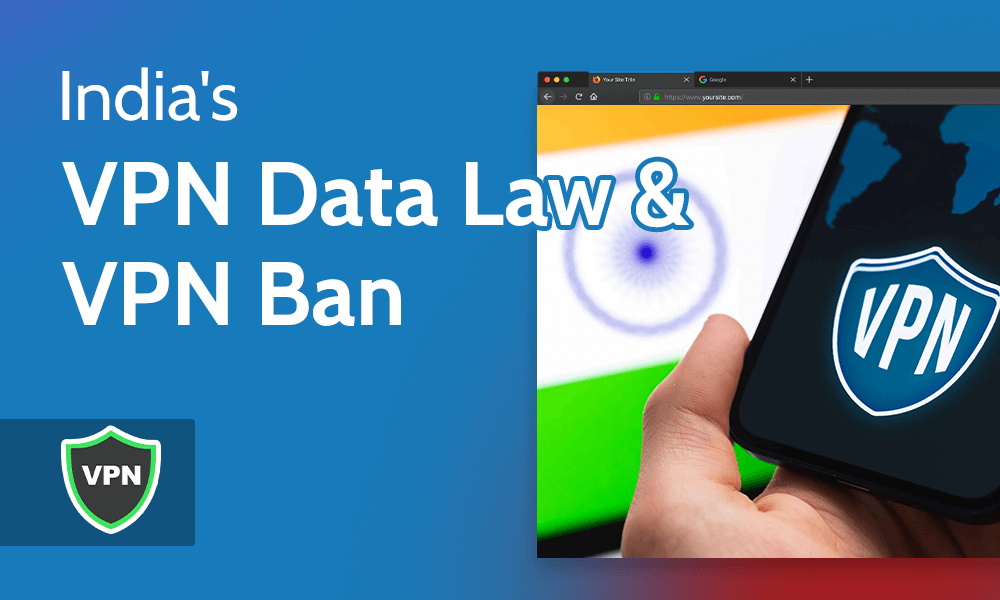
VPN Ban in India: A Threat to Privacy or a Step Towards Security?
Introduction
The Indian government has recently imposed strict regulations on Virtual Private Network (VPN) services, citing security concerns and the need to combat cybercrime. While VPNs have been widely used for privacy, secure browsing, and even accessing restricted educational materials, the new policy mandates VPN providers to store user data, including names, IP addresses, and browsing history, for up to five years.
This move has sparked debates about online privacy, digital surveillance, and the potential impact on users who rely on VPNs for legitimate purposes. In this blog, we’ll explore why VPNs are being restricted in India, what it means for users, and whether this decision truly enhances security or simply compromises digital freedom.
What is a VPN?
A Virtual Private Network (VPN) is a service that encrypts internet traffic and hides a user’s IP address, making online activities more private and secure. People use VPNs to:
✅ Protect their data from hackers on public Wi-Fi networks
✅ Access region-locked content (such as streaming services)
✅ Maintain anonymity while browsing
✅ Bypass internet restrictions imposed by governments or organizations
In simple terms, VPNs act as a protective shield between the user and the internet, ensuring online security and privacy. However, this very anonymity has raised concerns among governments, leading to India’s crackdown on VPN services.
Why Did India Ban VPNs?
The Indian government has expressed concerns that VPNs are being misused for cybercrime, illegal activities, and digital fraud. The key reasons behind the VPN ban include:
1. Tracking Cybercriminals
VPNs can be used to mask identities, allowing cybercriminals to commit crimes such as hacking, identity theft, and online scams without being easily traced. By forcing VPN providers to store user data, the government aims to track and prosecute individuals involved in illegal activities.
2. National Security Concerns
The Indian authorities believe that terrorists and other anti-national elements use VPNs to communicate securely, avoiding surveillance. The new regulations aim to give law enforcement agencies the power to track suspicious activities.
3. Curbing Online Fraud
Many financial frauds and scams involve criminals hiding their real location using VPNs. By mandating VPN companies to log user data, the government hopes to reduce such fraudulent activities.
4. Government Control Over Internet Usage
There’s also a possibility that this ban is part of broader efforts to control internet access. India has previously blocked certain websites and apps, and limiting VPN access might be another step toward increased digital surveillance.
What Do the New VPN Regulations Say?
According to India’s new cybersecurity guidelines:
✅ VPN providers must log user data for at least five years
✅ The data must include real names, IP addresses, email IDs, phone numbers, and browsing activity
✅ VPN providers must share this data with the government when requested
✅ VPN companies refusing to comply must exit the Indian market
This means VPNs are no longer completely private in India. Users seeking true anonymity might have to explore alternative methods or rely on VPN providers that operate outside India’s jurisdiction.
Which VPN Services Have Left India?
Following these regulations, several top VPN providers have shut down their Indian servers, including:
❌ ExpressVPN – Removed servers from India, now offering virtual locations
❌ ProtonVPN – Refused to comply and stopped operations in India
❌ NordVPN – Exited the Indian market, citing privacy concerns
❌ Surfshark – Shut down Indian servers but offers alternative solutions
These VPN companies argue that logging user data goes against the fundamental purpose of a VPN, which is to ensure privacy.
Impact of VPN Ban on Users
The VPN restrictions in India affect different groups in various ways:
???? For General Users – People who used VPNs for safe browsing, protecting personal data, or accessing restricted content will find it harder to maintain anonymity.
???? For Students & Researchers – Many rely on VPNs to access international academic resources, research papers, and educational content blocked in India. This restriction may limit their access.
???????? For IT Professionals & Businesses – Many companies use VPNs for secure remote work and data protection. The new rules could raise cybersecurity risks.
???? For Digital Privacy Advocates – Internet freedom groups see this as a step toward more government surveillance and censorship, reducing online privacy.
Are VPNs Still Legal in India?
Yes, VPNs are still legal in India, but they must follow the government’s logging rules. Users can still access VPN services, but their activities may no longer be fully private.
If you’re using a VPN, it’s important to choose a provider that:
✔️ Has a strict no-log policy
✔️ Operates outside India’s jurisdiction
✔️ Uses strong encryption methods
✔️ Provides virtual locations instead of physical servers in India
Many users are now looking at decentralized VPNs or Tor networks as alternatives to maintain anonymity online.
Is This a Step Towards Digital Surveillance?
Critics argue that these regulations are part of a larger push toward digital surveillance in India. With growing concerns over privacy, data tracking, and online restrictions, the VPN ban raises important questions:
❓ Will this really stop cybercrime, or just limit privacy for regular users?
❓ Are these restrictions necessary for security, or are they about government control?
❓ How will this affect businesses and professionals relying on VPNs for secure work?
While reducing cybercrime is essential, many believe that forcing VPNs to store user data defeats their very purpose.
Final Thoughts: The Future of VPNs in India
The VPN ban in India marks a turning point for digital privacy and online security. While the government aims to tackle cybercrime, the new regulations raise concerns about user surveillance and internet freedom.
As the digital landscape evolves, users must stay informed and make wise choices about their online security. Whether you’re a casual browser, a student, or an IT professional, understanding these changes is crucial.
What’s Your Take?
Do you think the VPN ban in India is necessary for security, or does it harm digital privacy? Share your thoughts in the comments!
???? Stay updated, stay secure, and keep your digital rights in mind!

Features of Instant Blog Script
Here you can see what kind of post contents you can add by Instant Blog Script. This is an image pos...



